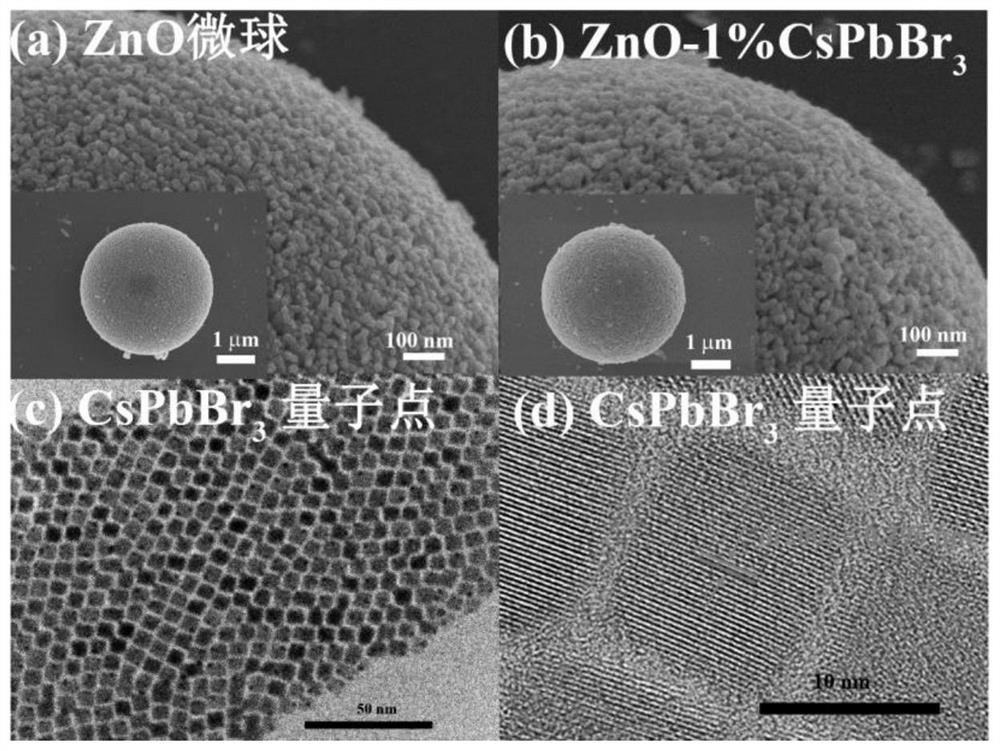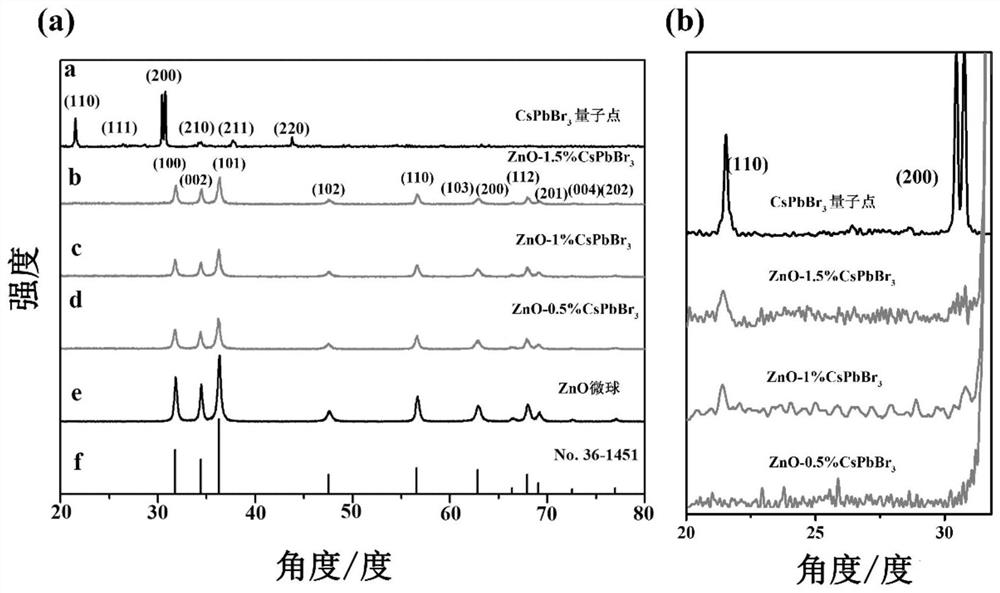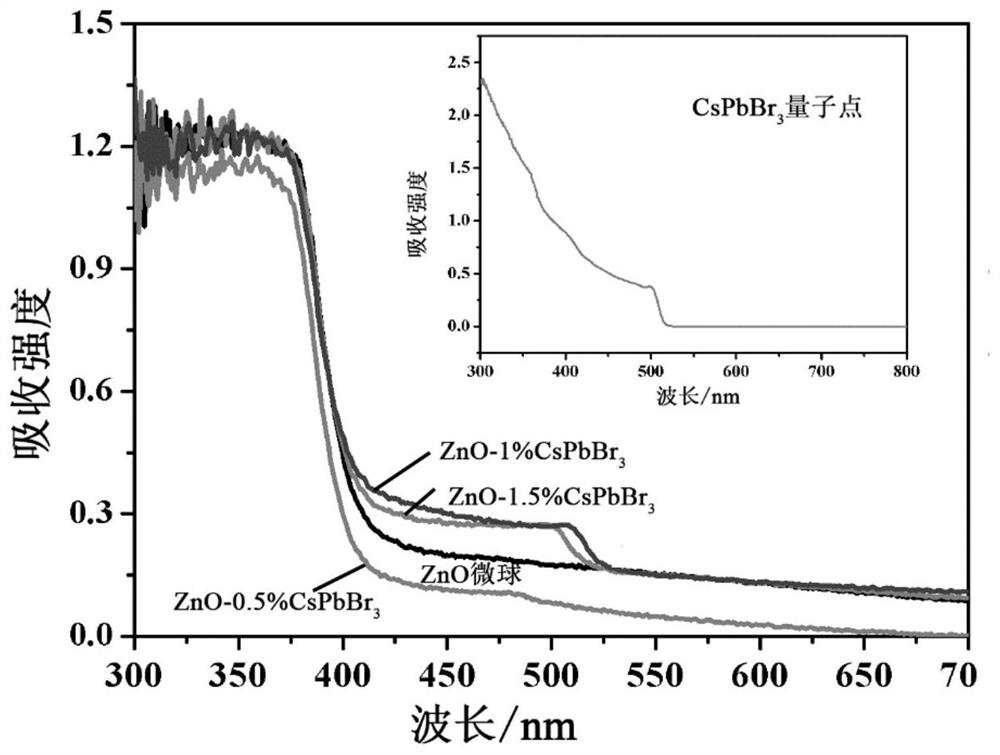Room-temperature NO2 sensor based on ZnO microsphere and CsPbBr3 quantum dot composite material and preparation method thereof
A composite material and quantum dot technology, applied in the field of semiconductor oxide gas sensors, can solve the problems of lack of long-term stability, low repeatability, and low response.
- Summary
- Abstract
- Description
- Claims
- Application Information
AI Technical Summary
Problems solved by technology
Method used
Image
Examples
Embodiment 1
[0034] 1. Mix 1.188g Zn(NO 3 ) 2 ·6H 2 O, 0.56g hexamethylenetetramine, 0.296g C 6 h 5 NaO 7 2H 2 O was added to 150 mL of deionized water. The mixture was stirred continuously at room temperature, and then the sealed mixture was placed in an oil bath at 90° C. for 30 minutes. The precipitate produced during this process was collected by centrifugal washing several times with deionized water and ethanol, and then heated in a vacuum oven at 120° C. for 4 hours. Finally, the powder was annealed at 400 °C for 2 hours to obtain ZnO microspheres.
[0035] 2. Mix 0.814g Cs 2 CO 3 , 2.5 mL of oleic acid and 30 mL of octadecene were mixed and degassed under vacuum at 120 ° C for 1 hour, and then the resulting mixture was heated to 150 ° C under nitrogen for 3 hours until a clear precursor solution of cesium and oleic acid was formed ; Second, 0.376mmol of PbBr 2 Mix it with 10mL of octadecene, dry it under vacuum at 120°C for 1 hour, and then dry it at 120°C under N 2 Inje...
Embodiment 2
[0041] Prepare ZnO microspheres and CsPbBr according to the method of embodiment 1 3 Quantum dots, changing the ratio of mixing the two. Take 0.043 mL of CsPbBr 3 The solution was mixed with 3 mL of n-hexane solution containing 50 mg of zinc oxide, and the CsPbBr in the prepared device 3 The mass is 0.5% of the mass of ZnO, marked as ZnO-0.5%CsPbBr 3 . The device preparation method and testing method are consistent with Example 1.
Embodiment 3
[0043] Prepare ZnO microspheres and CsPbBr according to the method of embodiment 1 3 Quantum dots, changing the ratio of mixing the two. Take 0.129 mL of CsPbBr 3 The solution was mixed with 3 mL of n-hexane solution containing 50 mg of zinc oxide, and the CsPbBr in the prepared device 3 The mass is 1.5% of the mass of ZnO, marked as ZnO-1.5%CsPbBr 3 . The device preparation method and testing method are consistent with Example 1.
PUM
 Login to View More
Login to View More Abstract
Description
Claims
Application Information
 Login to View More
Login to View More - R&D
- Intellectual Property
- Life Sciences
- Materials
- Tech Scout
- Unparalleled Data Quality
- Higher Quality Content
- 60% Fewer Hallucinations
Browse by: Latest US Patents, China's latest patents, Technical Efficacy Thesaurus, Application Domain, Technology Topic, Popular Technical Reports.
© 2025 PatSnap. All rights reserved.Legal|Privacy policy|Modern Slavery Act Transparency Statement|Sitemap|About US| Contact US: help@patsnap.com



